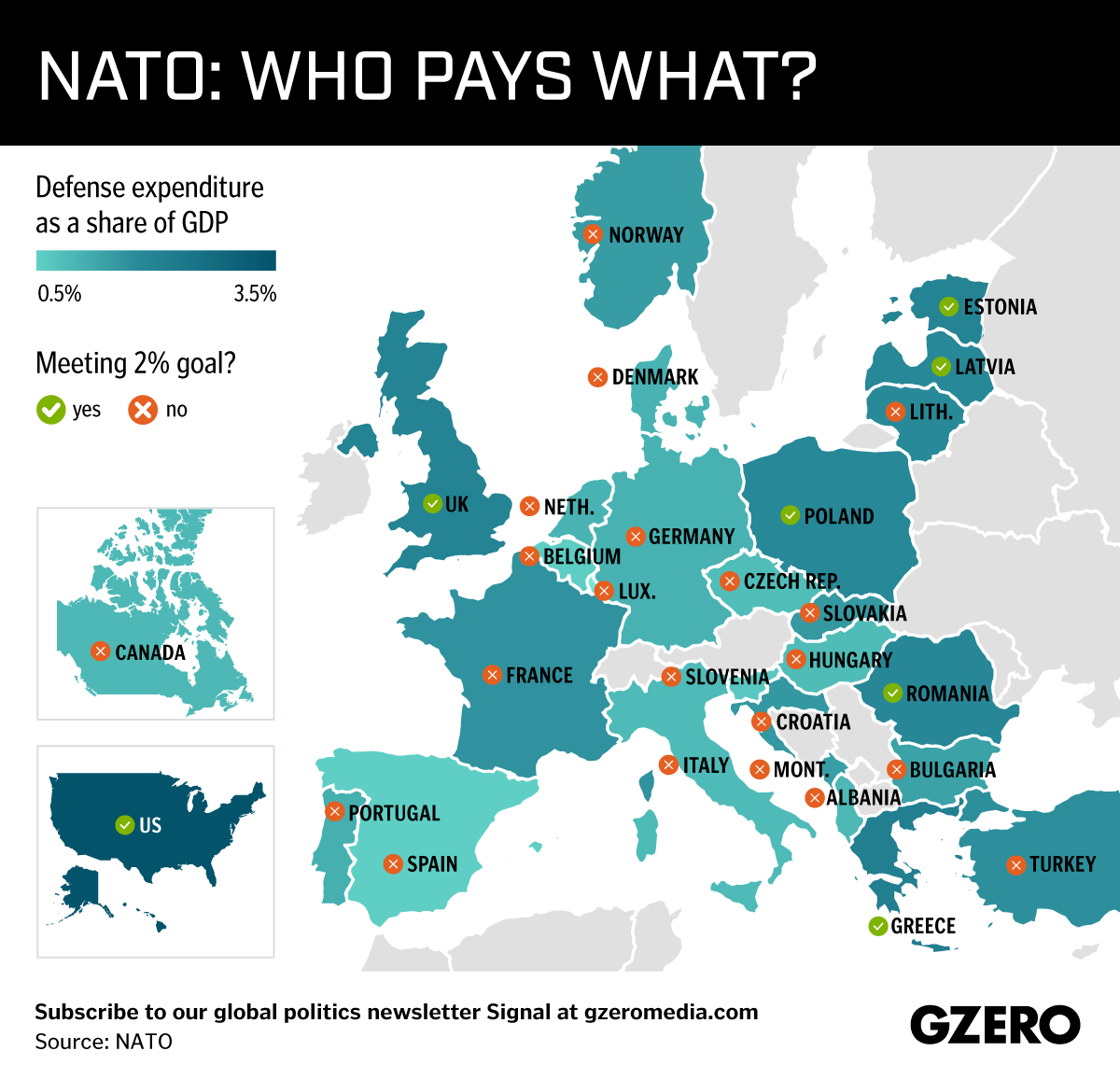November 13, 2019
Last week, French President Emmanuel Macron said that NATO was experiencing "brain death," citing a lack of coordination and America's fickleness under Donald Trump as reasons to doubt the alliance's commitment to mutual defense. NATO – the North Atlantic Treaty Organization – was formed in the wake of World War II as a counterweight against Soviet dominance in Europe and beyond. Its cornerstone is that an attack on one member is considered an attack on all. But disagreements over sharing the cost of maintaining military readiness have caused friction between the alliance's members in recent years. In 2014, the bloc agreed that each member state would increase their own defense spending to 2% of their respective GDP over the next decade. But so far, only seven of 29 members have forked out the money. Here's a look at who pays what.
More For You
- YouTube
In this Quick Take, Ian Bremmer weighs in on the politicization of the Olympics after comments by Team USA freestyle skier Hunter Hess sparked backlash about patriotism and national representation.
Most Popular
Bad Bunny during the Super Bowl LX halftime show press conference at Moscone Center.
Kirby Lee-Imagn Images
100 million: The number of people expected to watch the Super Bowl halftime performance with Bad Bunny, the Puerto Rican superstar and newly minted Album of the Year winner at the Grammys.
Alysa Liu of Team USA during Women Single Skating Short Program team event at the Winter Olympic Games in Milano Cortina, Italy, on February 6, 2026.
Raniero Corbelletti/AFLO
Brazilian skiers, American ICE agents, Israeli bobsledders – this is just a smattering of the fascinating characters that will be present at this year’s Winter Olympics. Yet the focus will be a different country, one that isn’t formally competing: Russia.
What We’re Watching: Big week for elections, US and China make trade deals, Suicide bombing in Pakistan
Feb 06, 2026
Japanese Prime Minister Sanae Takaichi, president of the Liberal Democratic Party (LDP), appeals for a candidate during a street speech of the House of Representatives Election Campaign in Shintomi Town, Miyazaki Prefecture on February 6, 2026. The Lower House election will feature voting and counting on February 8th.
The Yomiuri Shimbun
Japanese voters head to the polls on Sunday in a snap election for the national legislature’s lower house, called just three months into Prime Minister Sanae Takaichi’s tenure.
© 2025 GZERO Media. All Rights Reserved | A Eurasia Group media company.
